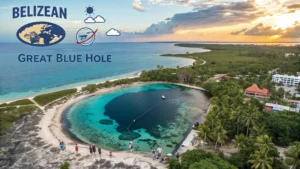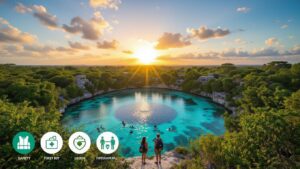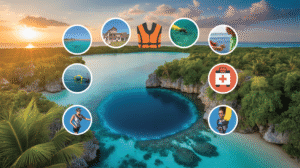Belize is renowned as a premier Caribbean destination, offering stunning natural beauty and rich cultural experiences. However, it is essential for prospective travelers to achieve a harmonious balance between reveling in the breathtaking paradise that Belize provides and implementing necessary precautions to safeguard their well-being. This extensive guide delivers the latest crime statistics, government travel advisories, and firsthand insights, equipping travelers with the essential knowledge needed to explore Belize’s magnificent beaches, verdant jungles, and remarkable ancient ruins while prioritizing their safety and enjoyment.
1. Analyzing Crime Rates and Trends in Belize for Informed Travel Decisions
As of 2024, Belize recorded a homicide rate of 21.7 per 100,000 inhabitants, a modest increase from the previous year's rate of 21.5. Notably, the first half of 2025 experienced a remarkable 29 percent reduction in homicides compared to the same period in 2024, with only 41 cases reported versus 58. According to the CompStat report from the Belize Police Department, there was also an overall decline in major crimes by 9 percent, decreasing from 536 incidents in H1 2024 to 489 in H1 2025. This positive trend is primarily driven by significant reductions in murder (–29 percent), robbery (–15 percent), and theft (–26 percent), indicating an encouraging improvement in safety for both residents and visitors alike.
| Crime Category | Jan–Jun 2024 | Jan–Jun 2025 | Change |
|---|---|---|---|
| Major crimes | 536 | 489 | –9 percent |
| Murders | 58 | 41 | –29 percent |
| Robbery | – | – | –15 percent |
| Theft | – | – | –26 percent |
2. Crucial Government Travel Advisories for a Safe Visit to Belize
- U.S. Department of State: Currently, Belize is classified as Level 2: Exercise Increased Caution due to the prevalence of violent crime, which encompasses sexual assault, home invasions, armed robberies, and murder. Specifically, the Southside of Belize City is rated Level 3: Reconsider Travel—it is strongly recommended to steer clear of non-tourist areas located south of Haulover Creek. Source: U.S. Department of State
- Government of Canada: Canadians are urged to exercise a high degree of caution throughout the country, with specific advisories to avoid non-essential travel to Southside Belize City due to ongoing gang-related and drug-related violence. Source: Government of Canada
- UK FCDO: The UK Foreign, Commonwealth & Development Office warns that Belize has one of the highest murder rates globally per capita; the serious gang-related violence primarily affects the Southside of Belize City. However, other regions such as San Pedro, Caye Caulker, Placencia, and San Ignacio generally remain safe for travelers who adhere to necessary precautions. Source: UK Foreign, Commonwealth & Development Office
3. Recognizing High-Risk Areas and Common Crimes to Avoid in Belize
- Belize City (Southside): This region is notorious for gang activity that significantly contributes to elevated violent crime rates. It is advisable to avoid non-tourist neighborhoods, especially after dark, to ensure personal safety and security.
- Border Zones: Areas adjacent to the borders are experiencing an uptick in smuggling and cross-border violence, particularly with Guatemala, which travelers should remain cognizant of.
- Petty Crime Hotspots: Locations such as San Pedro are known for incidents of pickpocketing and credit card fraud. Always take precautions by shielding your PIN when using ATMs and opt for machines located inside banks for added safety and security.
4. Effective Safety Strategies for Travelers Exploring Belize
Improving Your Personal Security While Traveling in Belize
- Stay alert: It is essential to avoid walking alone at night, particularly in urban settings such as Belize City and Belmopan, where the risk of crime tends to be elevated.
- Protect your valuables: Always utilize hotel safes for important belongings and keep wallets and phones concealed to deter potential thieves and pickpockets.
- Exercise caution regarding drinks: Never accept food or drinks from strangers, as this may lead to dangerous and compromising situations.

Transportation Safety Guidelines for a Secure Travel Experience
- Road Conditions: Be aware that many secondary roads in Belize are unpaved and inadequately lit. It is advisable to drive only during the daytime and ensure your fuel tank is filled before embarking on longer journeys to avoid being stranded.
- Public Transport Caution: Public buses often lack proper maintenance—it's best to avoid them when possible. When utilizing licensed taxis, be mindful that they are not regulated by meters; therefore, negotiate your fare in advance to prevent misunderstandings and potential disputes.
- Ferries Safety: When traveling between the cayes, ensure that life jackets are readily available and that the vessels are not overcrowded to guarantee safe travel experiences.
Participating in Adventure Activities Safely in Belize
- When engaging in adventure activities such as scuba diving, zip-lining, and cave tubing, always select reputable operators. Verify their safety records and equipment standards to ensure your safety; consider acquiring travel insurance that covers medical evacuation for added peace of mind.
- Only swim in designated areas; riptides are prevalent, and lifeguards are often few and far between, making it essential to prioritize safety while enjoying the water.
Essential Health Precautions for a Safe Trip to Belize
- Vaccination Recommendations: While there is no entry requirement for yellow fever, it is strongly advised to receive vaccinations against hepatitis A, hepatitis B, typhoid, and rabies before traveling to Belize. For comprehensive details, check the CDC guidelines.
- Mosquito Protection: Given the year-round risk of diseases such as dengue, chikungunya, and Zika, it is crucial to apply EPA-approved insect repellent, wear long-sleeved clothing, and sleep under mosquito nets to reduce exposure to these harmful insects.
- Water Safety Guidelines: Follow the guideline of “boil it, cook it, peel it, or leave it” when it comes to food and water consumption. Carry oral rehydration salts to effectively manage traveler’s diarrhea and ensure proper hydration throughout your stay.
5. Special Considerations for Women, Children, and LGBTQ Travelers in Belize
- Women traveling solo should exercise heightened caution to avoid isolated areas and poorly lit alleys, as there have been reports of harassment in certain regions of Belize.
- Individuals from the LGBTQ community may encounter social stigma in Belize; it is advisable to refrain from public displays of affection to ensure personal safety and comfort.
- Children traveling alone or with only one parent must possess notarized parental consent letters, as immigration officials in Belize enforce this regulation stringently.

6. Accessing Emergency Services and Consular Support for Travelers in Belize
- In the event of emergencies, always dial 911 for immediate assistance, whether you need medical, fire, or police services in Belize.
- The U.S. Embassy located in Belmopan and the Canadian Honorary Consul in Belize City are available to provide assistance with issues such as arrests, detention, or other emergencies. For more information, visit U.S. Embassy Belmopan.
- Ensure that you enroll in your government’s traveler-registration program, such as STEP for U.S. citizens or the Registration of Canadians Abroad for Canadians, to stay informed and receive vital assistance while traveling.
Comprehensive Bibliography and Resources for Travelers
- Belize Police Department’s CompStat report
- U.S. Department of State Belize Travel Advisory
- Government of Canada Travel Advice for Belize
- UK Foreign, Commonwealth & Development Office Advice
- CDC Traveller’s Health: Belize
- U.S. Embassy Belmopan
The Article Is Belize Safe to Visit? 2025 Complete Safety Guide for Smart Travelers appeared first on Belize Travel Guide
The Article Belize Safety Guide 2025: Essential Tips for Smart Travelers Was Found On https://limitsofstrategy.com


